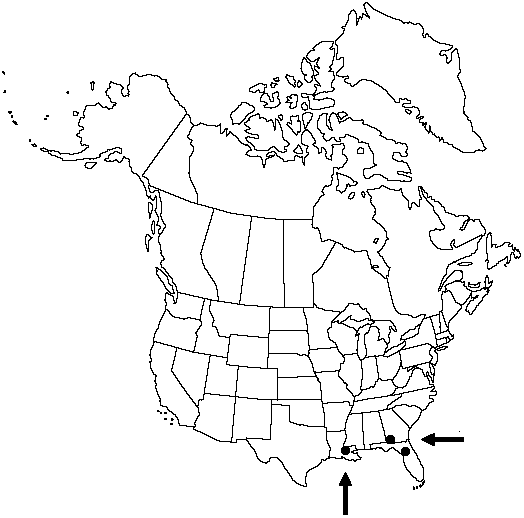Selaginella uncinata
Bull. Acad. Roy. Sci. Bruxelles 10: 141. 1843.
Plants terrestrial, forming diffuse mats. Stems long-creeping, branched, branches 3-forked, flat, not articulate, glabrous. Rhizophores axillary, mostly at stem base or apex, 0.3–0.4 mm diam. Leaves delicate, papery. Lateral leaves distant, iridescent, green to blue-green, ovate-oblong, 3–4.2 × 1.5–2.5 mm; basiscopic base with small auricle, acroscopic base overlapping stem; margins conspicuously transparent, entire; apex acute to obtuse. Median leaves ovate-lanceolate, 2.2–3.5 × 1.2–1.8 mm; base with outer auricle; margins transparent, entire; apex acuminate. Strobili solitary, 0.5–1.5 cm; sporophylls monomorphic, lanceolate to narrowly ovate-lanceolate, strongly tapering toward apex, keeled, keel not dentate, base glabrous, margins transparent, entire, apex long-acuminate. 2n = 18.
Habitat: Hammocks in shade near streams
Elevation: 0–50 m
Distribution

Introduced; Fla., Ga., La., Asia in China.
Discussion
Selaginella uncinata is widely cultivated outdoors along the Gulf Coast of the United States and in greenhouses and nurseries. It is a native of southern China and is closely allied to S. delicatula (Desvaux ex Poiret) Alston, also in part from China.
Selected References
None.